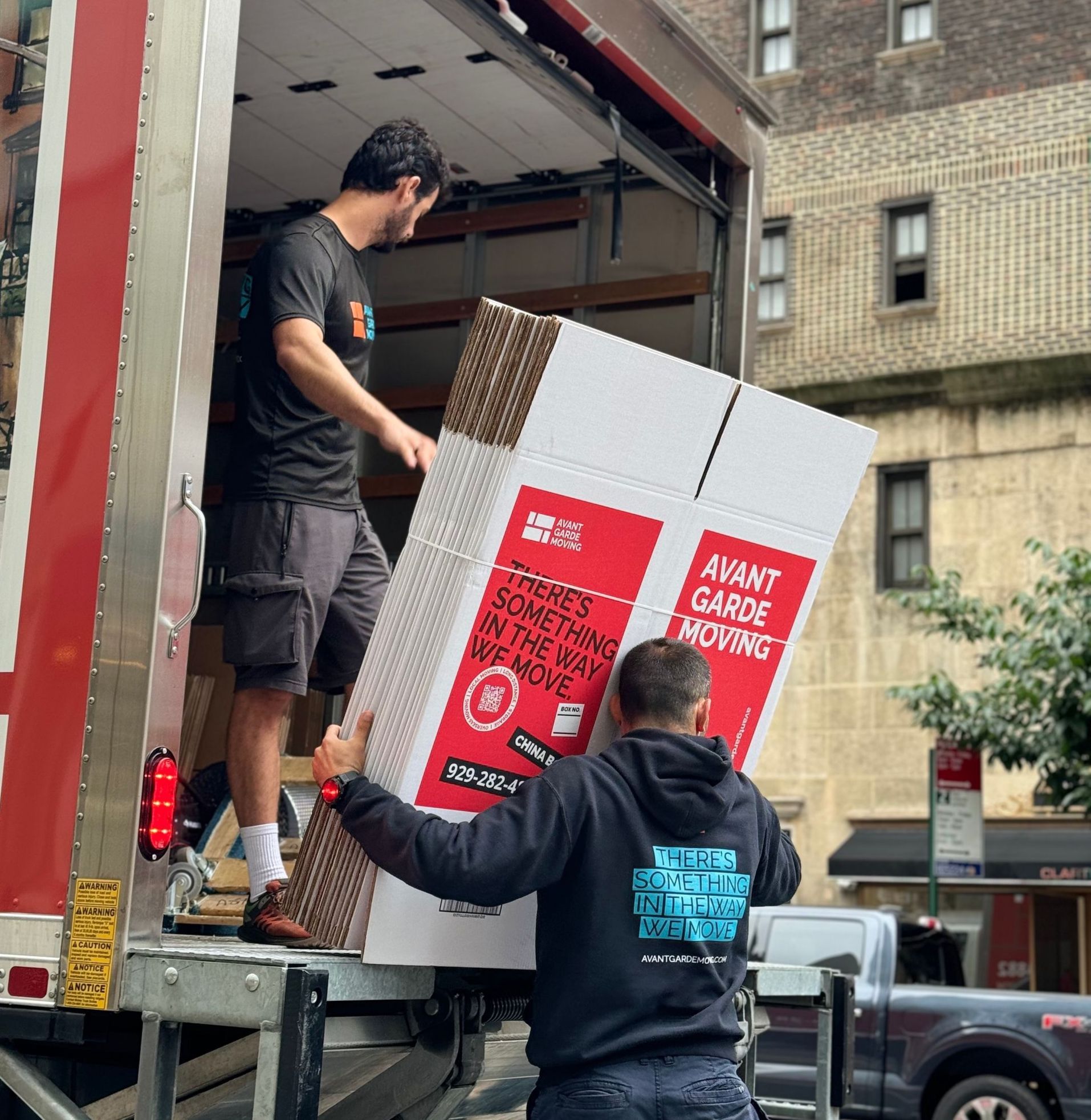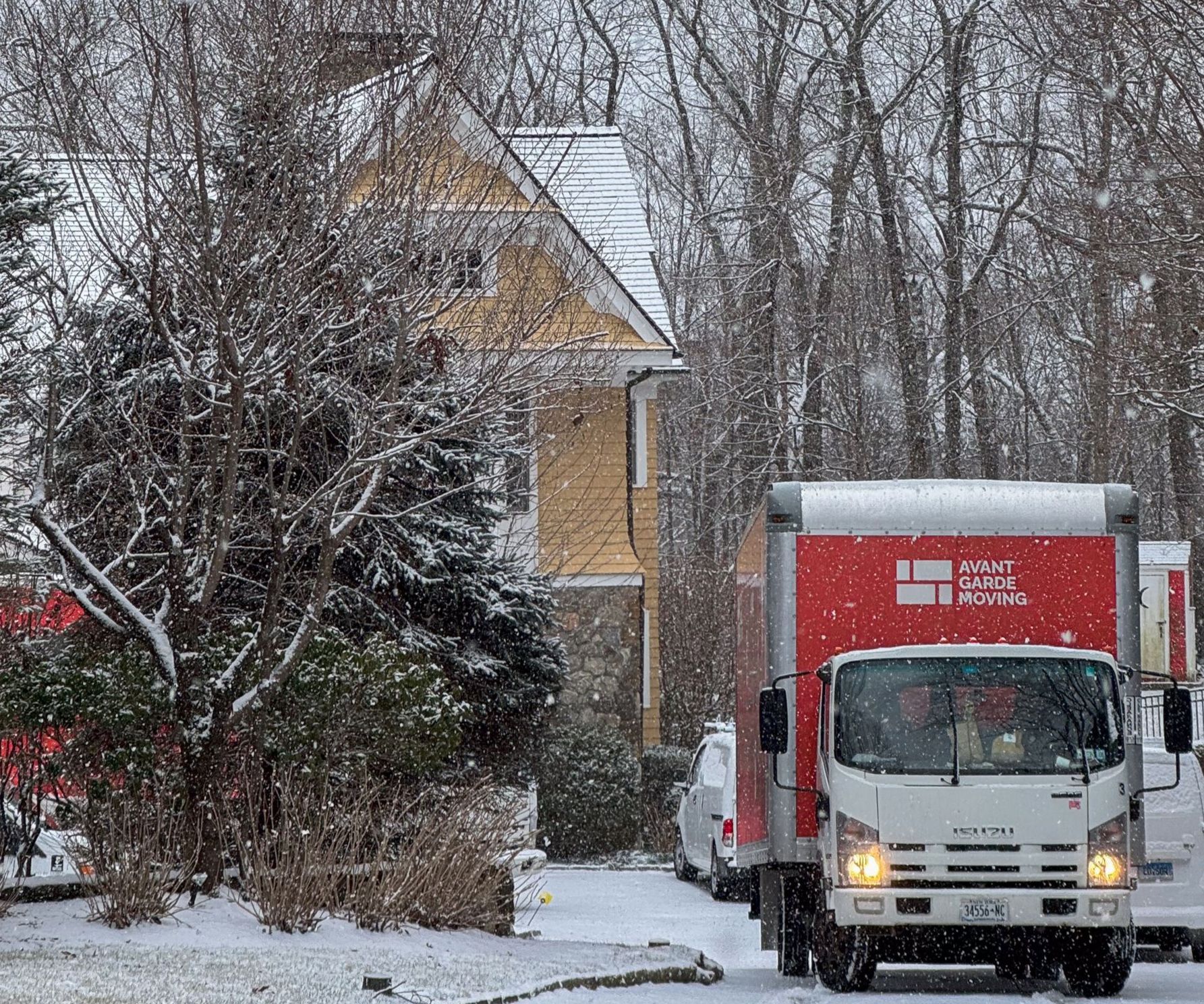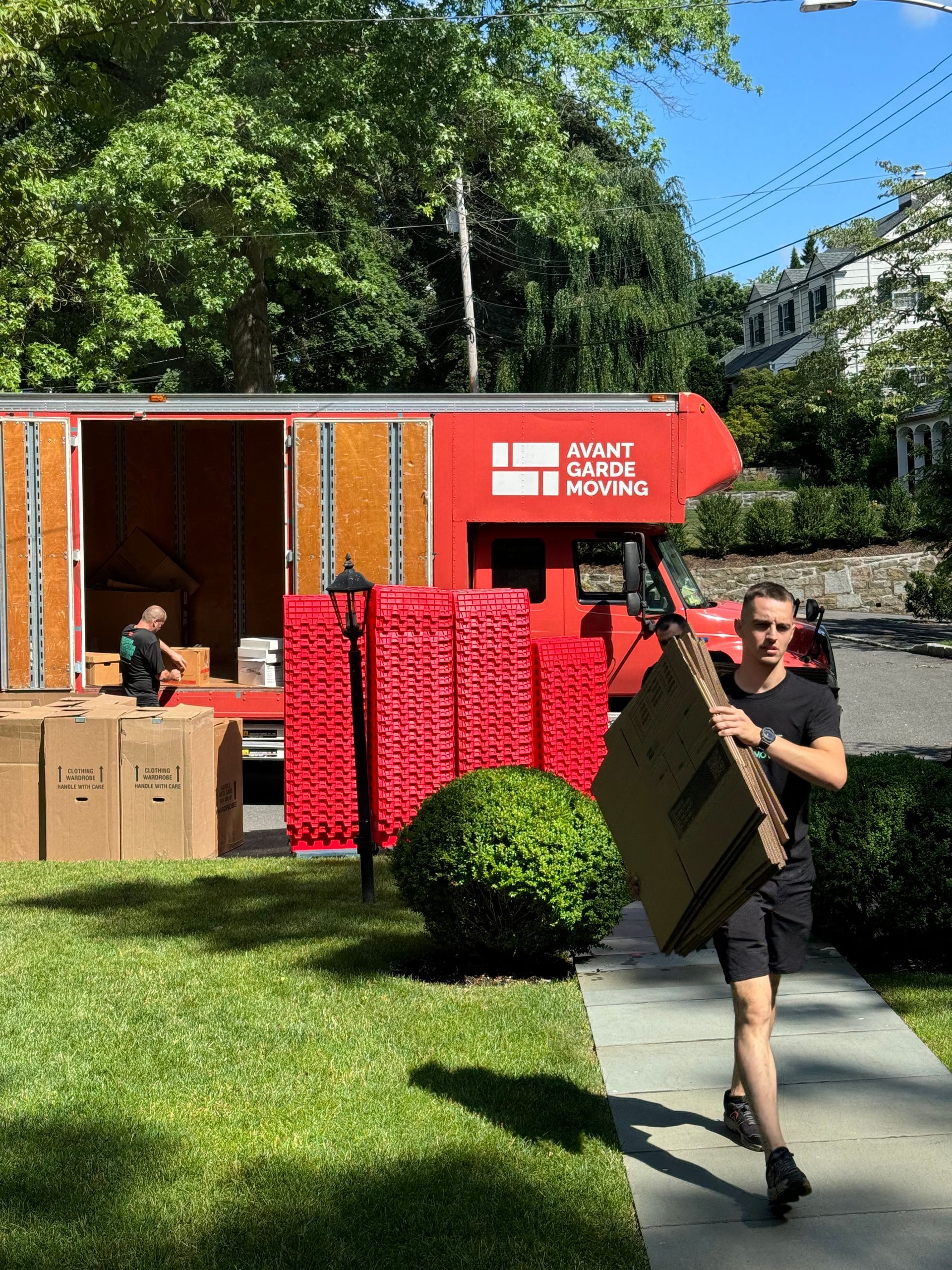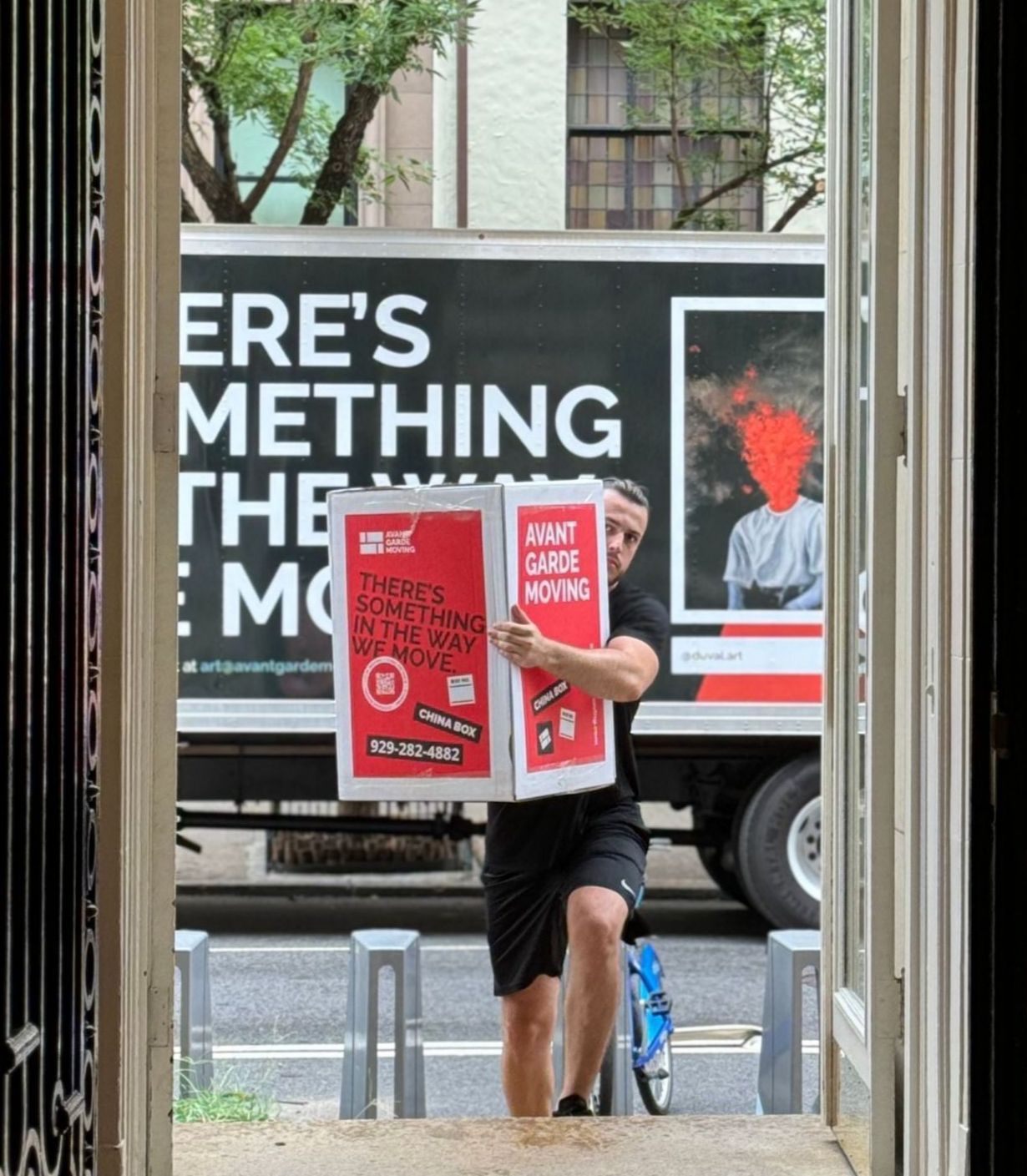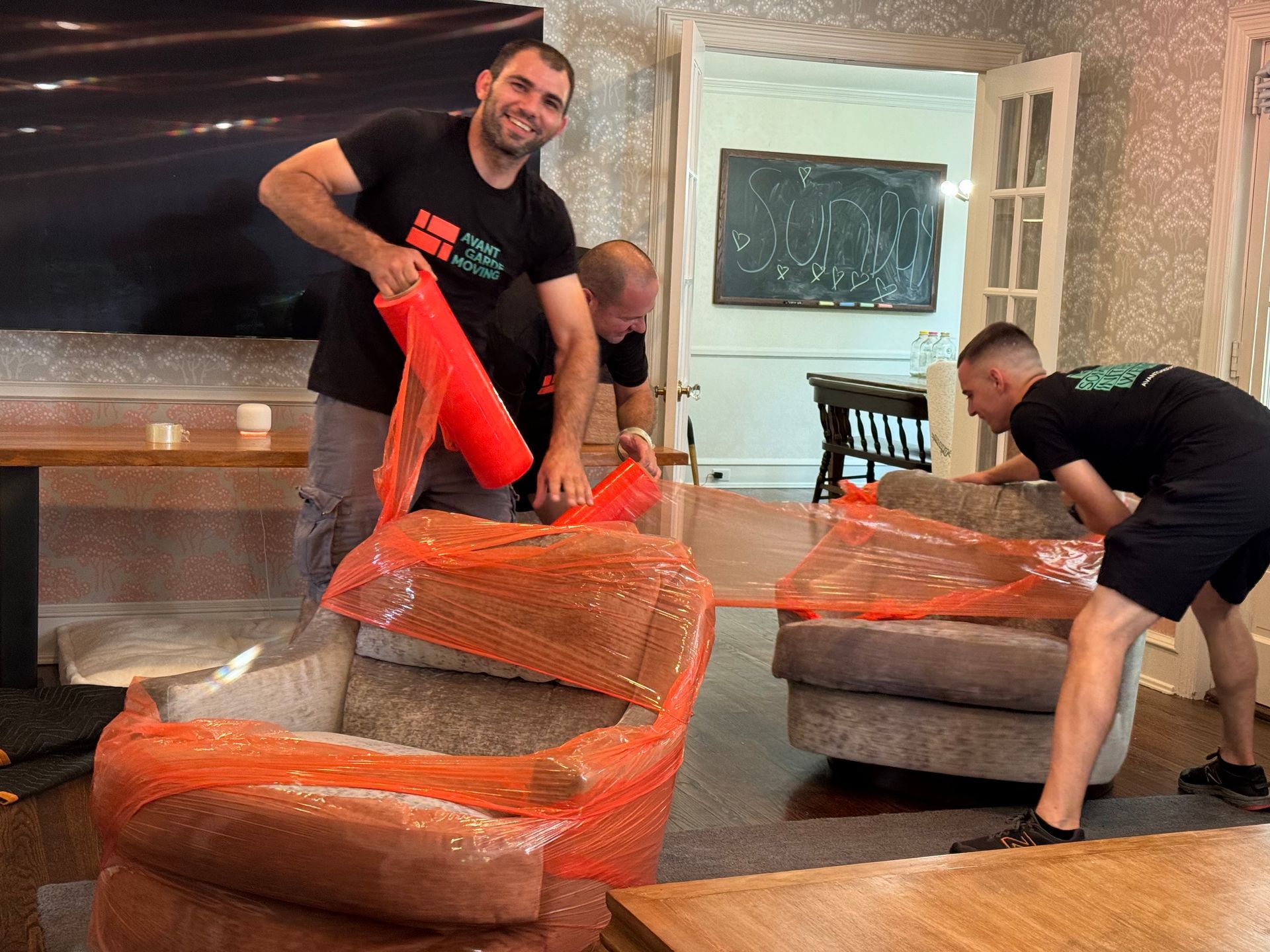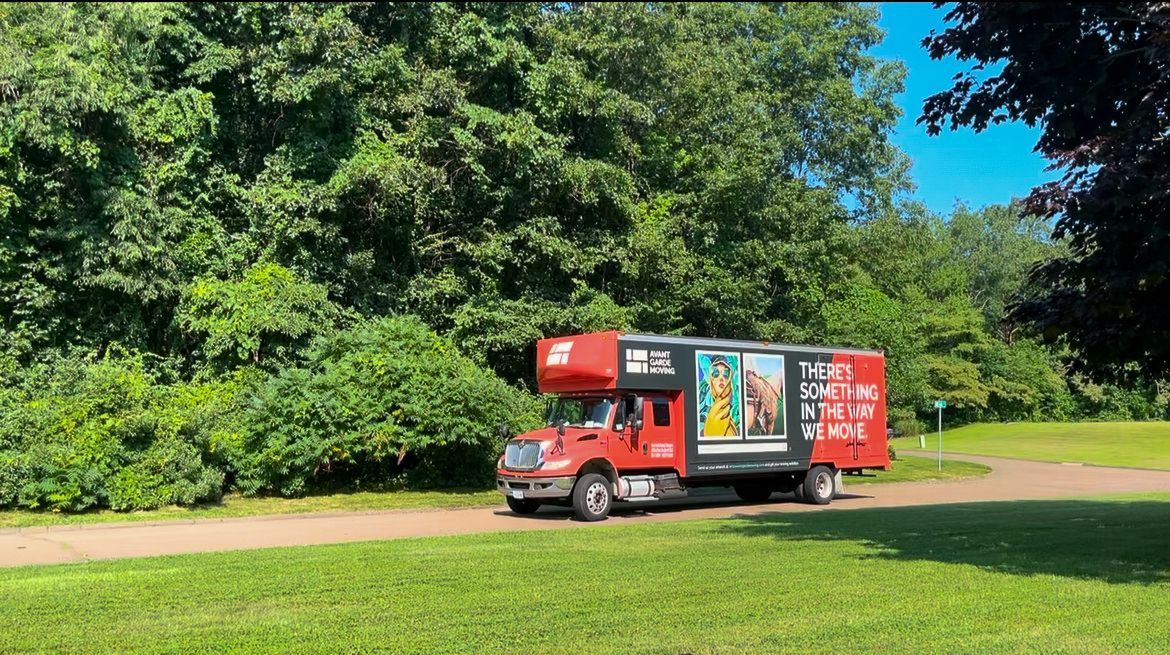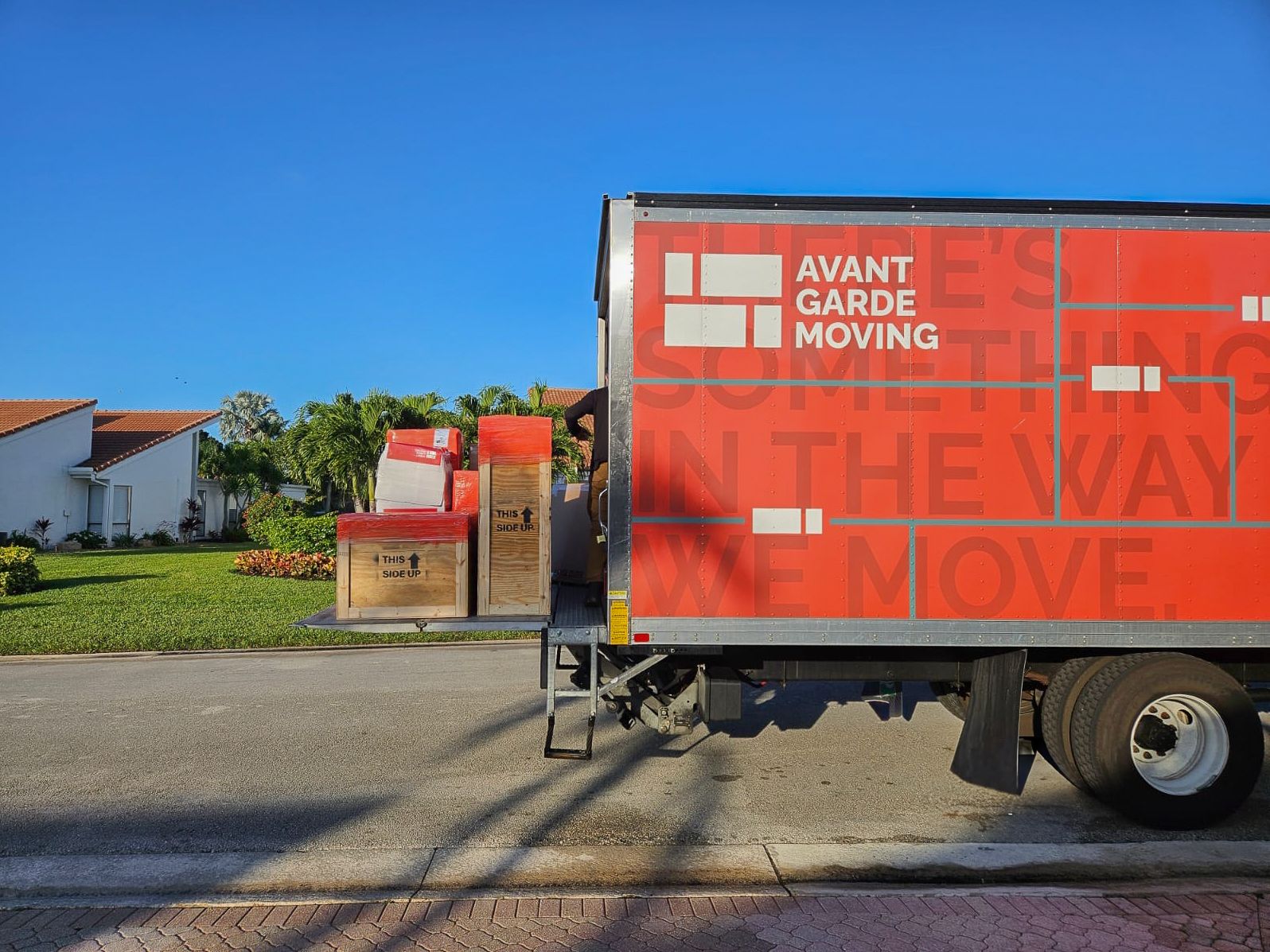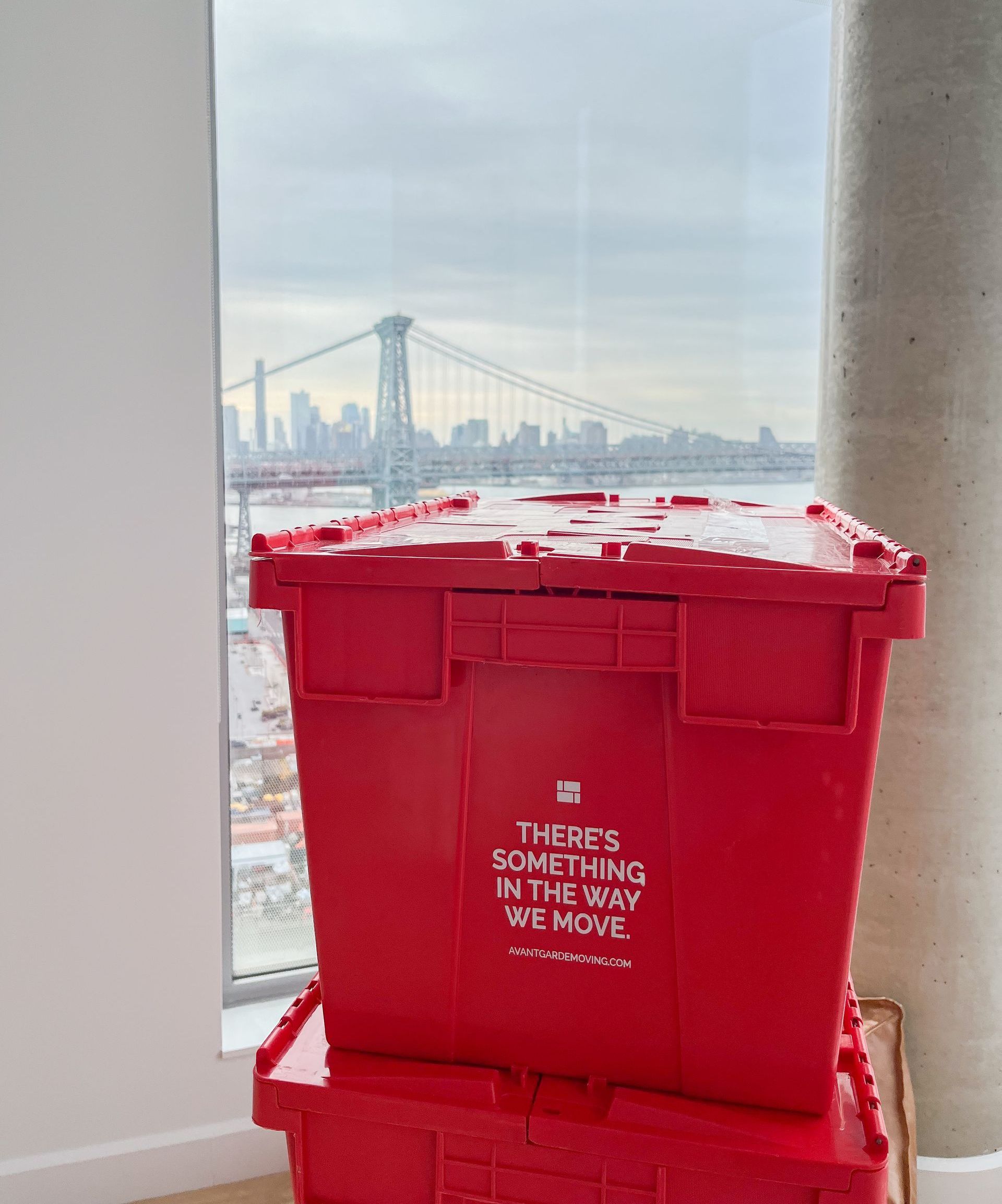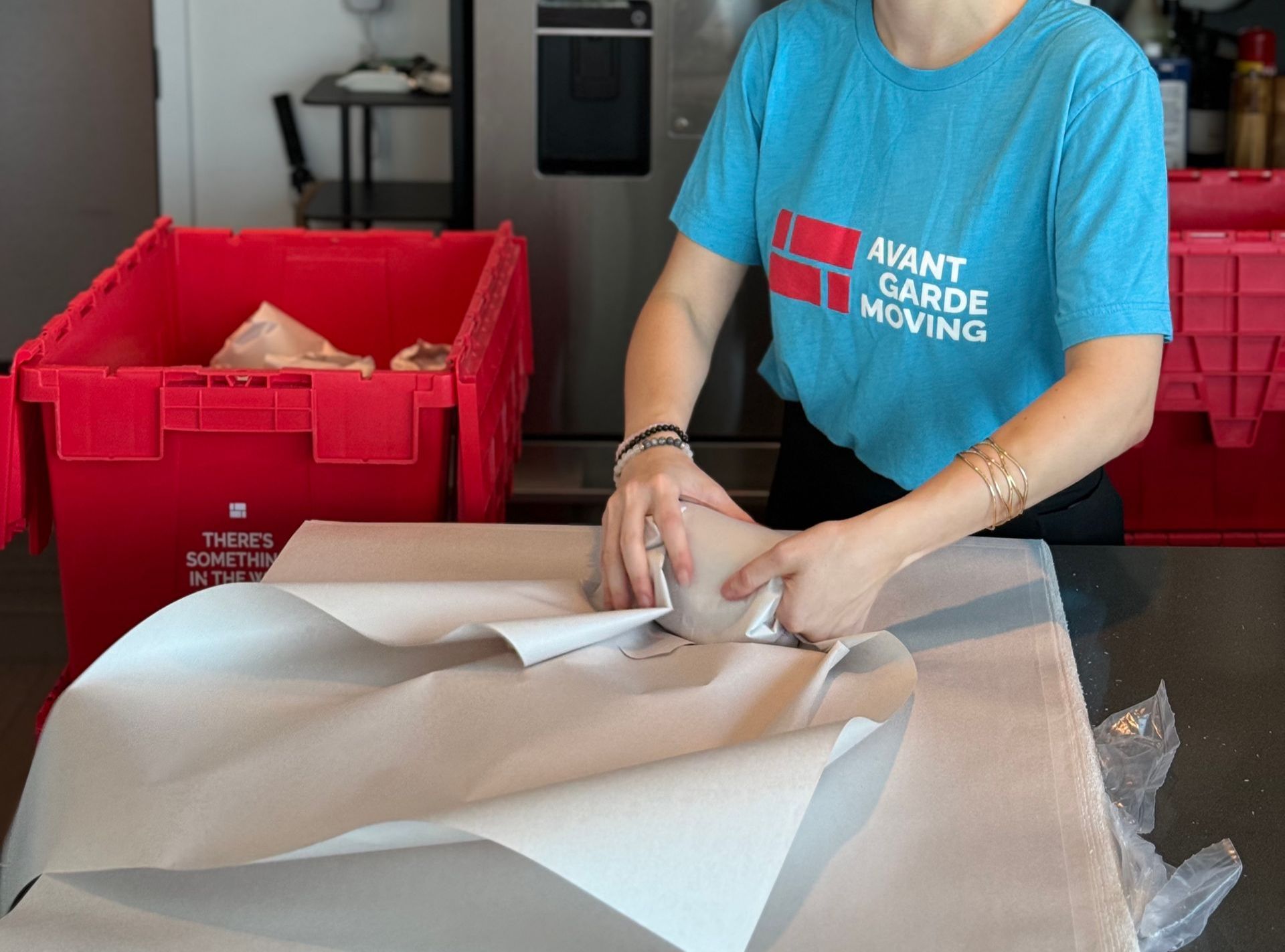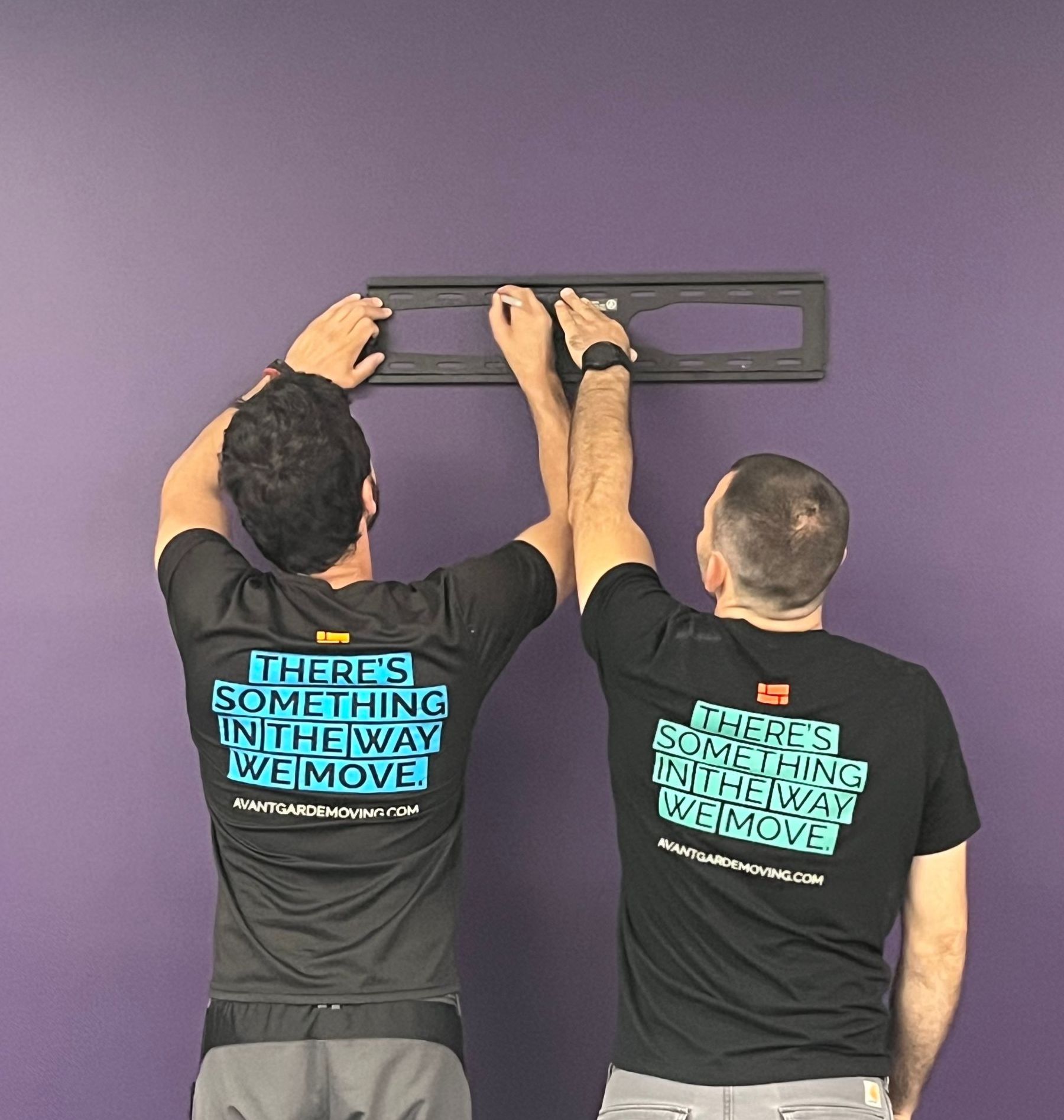Stress-Free Residential Moving Guide:
Expert Tips & Services
With the right approach, planning, and expert strategies, you can achieve a stress-free residential move. Whether you're relocating within NYC or moving long-distance, this guide will walk you through essential tips, packing techniques, and organization strategies to make the process seamless.
By following expert residential moving tips and planning ahead, you can make the transition smooth and hassle-free. This relocation guide will walk you through every stage of the moving process - from packing and organizing to settling into your new space - helping you stay on track and minimize stress.
If you’re searching for a trusted residential moving company, hiring professional movers can take the burden off your shoulders by handling everything from packing and transport to unpacking and setup. Let's get started on making your move stress-free!
How to Make Moving Easier and Stress-Free?
You can make moving easier and stress-free by planning early, staying organized, and hiring professional movers who can handle the heavy lifting for you. Moving to a new home can be an overwhelming process, but with the right approach, it becomes much more manageable. A smooth moving experience requires strategic packing, efficient scheduling, and minimizing last-minute stress.
- Start Early: Begin planning and packing well in advance to avoid last-minute rushes.
- Stay Organized: Keep a detailed inventory of your belongings and label boxes clearly.
- Seek Professional Help: Hiring experienced movers can alleviate much of the physical and logistical burden.
How to Prepare for a Move?
You can best prepare for a move if you start early, create a plan, and stay organized throughout the process. The earlier you begin, the smoother the transition will be. A step-by-step moving guide helps you stay on track and eliminates unnecessary stress
- Create a Moving Timeline: Plan your move at least six to eight weeks before the big day.
- Declutter & Sort: Get rid of anything you don’t need by donating, selling, or disposing of items.
- Gather Packing Supplies: Stock up on sturdy boxes, tape, bubble wrap, and markers.
- Notify Important Parties: Update your address with utility providers, banks, and subscriptions.
- Hire a Reliable Moving Company: Research and book professional movers as early as possible.
- Create a Moving Day Checklist: Having a detailed checklist helps keep everything on track.
Moving Plan and Timeline
Planning should begin at least
6-8 weeks before your move to avoid last-minute chaos. A moving checklist will help you stay on track:
8 Weeks Before Moving Day:
- Sort belongings into keep, donate, sell, or discard categories
- Research moving companies and get multiple quotes
- Plan your moving budget, considering costs like supplies and professional movers
6 Weeks Before Moving Day:
- Hire a licensed moving company like Avant-Garde, and finalize booking details
- Begin packing non-essential items like seasonal clothes and décor
- Notify utility companies and start the process of transferring services
4 Weeks Before Moving Day:
- Gather packing material such as cardboard boxes, bubble wrap, and tape
- Start packing room by room, clearly labeling boxes with contents and destinations
- Schedule a move-out cleaning if needed
2 Weeks Before Moving Day:
Update your address with banks, credit cards, and subscriptions.
Confirm moving day details with your hired professionals.
Pack a moving essentials box with daily necessities.
Moving Week:
- Finalize packing, leaving out only the items you’ll need until moving day
- Confirm details with movers and prepare for moving day
- Do a final walkthrough to ensure nothing is left behind
Nature's Symphony
What is the best way to pack for moving ?
The best way to pack for a move is to use high-quality packing materials, organize items by category, and label boxes clearly to make unpacking easier. Proper packing not only protects your belongings but also streamlines the moving process, reducing stress and potential damage.
- Start Early: Begin packing items you don’t use daily at least three weeks before the move
- Pack Room by Room: Keeping similar items together makes unpacking much easier
- Label Everything Clearly: Write the room and contents on each box so movers know where to place them
- Use Proper Protection for Fragile Items: Wrap dishes, glassware, and electronics carefully
- Keep Essentials Separate: Pack a box with daily necessities like toiletries, chargers, and a change of clothes
- Avoid Overloading Boxes: Keep boxes manageable to prevent injuries and damage
How to Stay Organized During a Move?
You can easily stay organized during a move by following moving organization tips, such as creating a packing system, labeling boxes, and keeping track of important documents. A well-structured moving plan helps prevent last-minute confusion and misplaced items.
- Use a Moving Binder: Keep track of important documents, contracts, and receipts
- Label Boxes Systematically: Consider color coding for different rooms to simplify unpacking
- Keep an Inventory List: Document the contents of each box to ensure nothing gets lost
- Assign Responsibilities: If moving with family, divide tasks to streamline the process
What Should Be on Your Moving Day Checklist?
Your moving day checklist should include confirming all details, protecting important items, and preparing your new home for arrival. Having a checklist ensures you don’t overlook anything before heading to your new home.
- Before the movers arrive, do a last-minute check of your belongings, making sure all final items are packed and that essentials such as medications, toiletries, and important documents are set aside in a separate bag. If pets or children are in the home, arrange for them to be in a safe space away from the moving process.
- Once the movers begin loading, stay available to provide instructions and answer any questions. If there are fragile or valuable items, point them out to ensure they receive special handling. Keep your phone on hand for any updates, especially if there are changes to parking or building access.
- Before leaving, do a final walkthrough of your old home, checking closets, cabinets, and outdoor spaces to ensure nothing is left behind. Secure the home by locking windows and doors, turning off lights, and leaving behind any necessary information for the new occupants.
- Upon arriving at your new home, confirm that utilities are working and direct the movers on where to place furniture and boxes. Prioritize setting up your bedroom and kitchen so that you can comfortably settle in. Over the next few days, focus on unpacking gradually while updating your address with necessary services.
How to Make Moving Day Easier?
You can make moving day easier by staying calm, following a plan, and preparing for unexpected challenges. Moving day can feel chaotic, but the right approach ensures a hassle-free transition.
- Dress Comfortably: Wear clothing and shoes that allow for easy movement
- Stay Hydrated and Take Breaks: Moving is physically demanding, so keep water and snacks available
- Plan for Kids and Pets: Arrange for childcare or pet sitting to keep distractions to a minimum
- Stay Flexible: Be prepared for unexpected delays and adjustments
Prepare Your New Home
Once your belongings have arrived, begin by checking that utilities such as electricity, water, and internet are functioning.
- Start unpacking the most essential areas first, focusing on the bedroom, bathroom, and kitchen to create a livable space as quickly as possible.
If renting, take photos of the condition of the property before moving in your furniture to document any pre-existing damage. If young children or pets will be in the home, check that gates, doors, and windows are secure before letting them roam freely.
Over the first few days, update your address with your bank, subscriptions, and the postal service to ensure a smooth transition to your new location.
How to Unpack Efficiently After Moving?
The best way to unpack after moving is to focus on essential items. Unpack one room at a time and stay organized during the process. Instead of opening boxes randomly, focus on the essentials first.
- Start with Essentials: Unpack your necessities, such as toiletries, medications, and kitchen items
- Set Up Key Rooms First: Focus on the bedroom, bathroom, and kitchen before moving to less critical areas
- Break Down Boxes as You Unpack: Clear out space to keep your new home tidy
- Organize as You Go: Take your time setting up each space instead of rushing through everything
Need Temporary Storage?
If you’re not ready to unpack everything, consider using secure storage solutions. Avant-Garde Moving offers short-term and long-term storage options for extra furniture, seasonal items, or valuables.
Why Choose Avant-Garde Moving for Your Residential Move?
You should choose Avant-Garde Moving because we offer a stress-free and seamless moving experience with expert movers, efficient packing services, and transparent pricing. With our team handling your move, you can have peace of mind knowing everything is taken care of.
- Experienced Movers: Our team is trained to handle all aspects of residential moving with professionalism
- Custom Moving Plans: We tailor our services to meet your specific needs, whether local or long-distance
- Transparent Pricing: No hidden fees, just honest and competitive rates
- Customer Satisfaction: Our priority is making your move smooth, efficient, and worry-free
Contact us today to book your move and experience a seamless relocation with Avant-Garde Moving & Storage!
